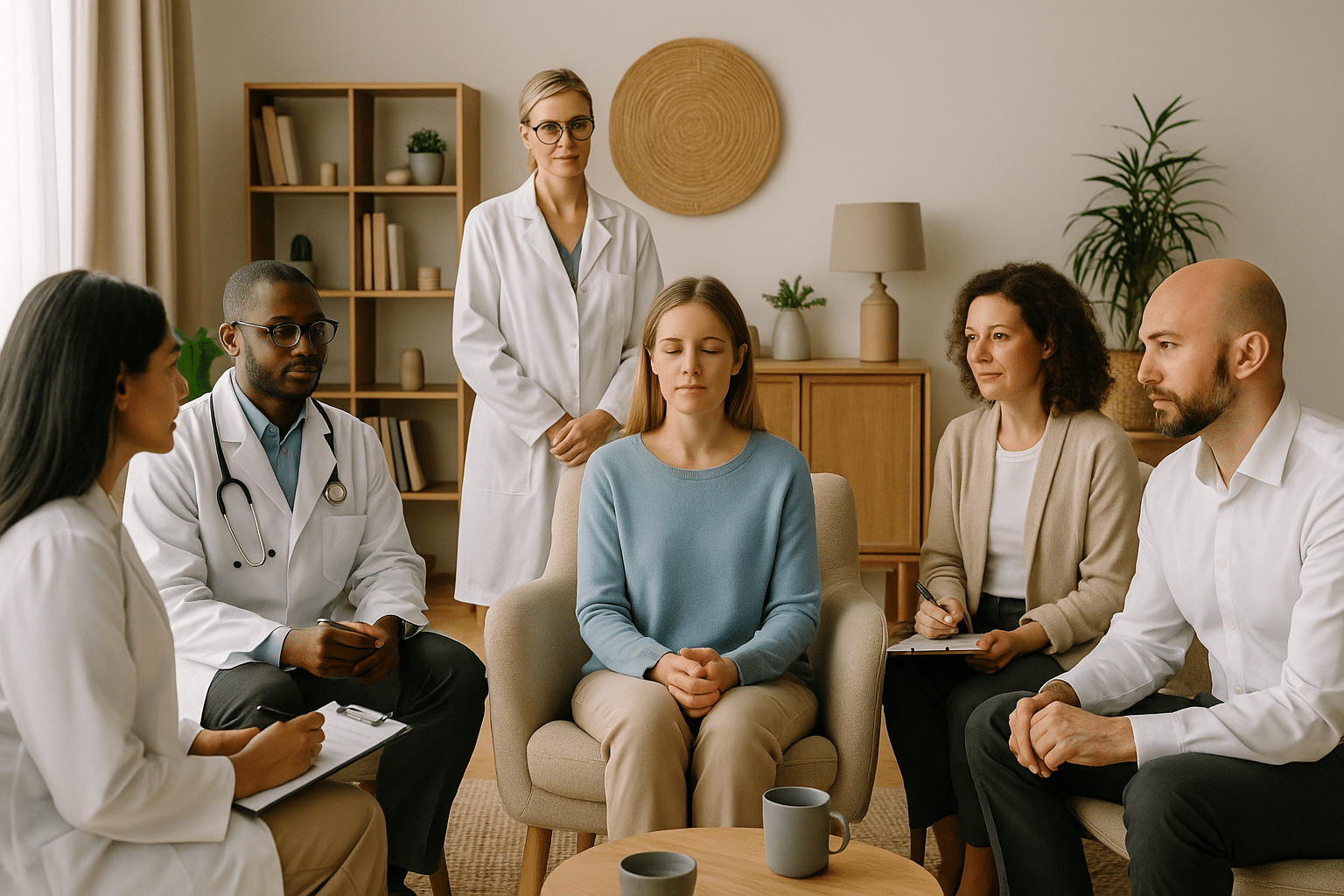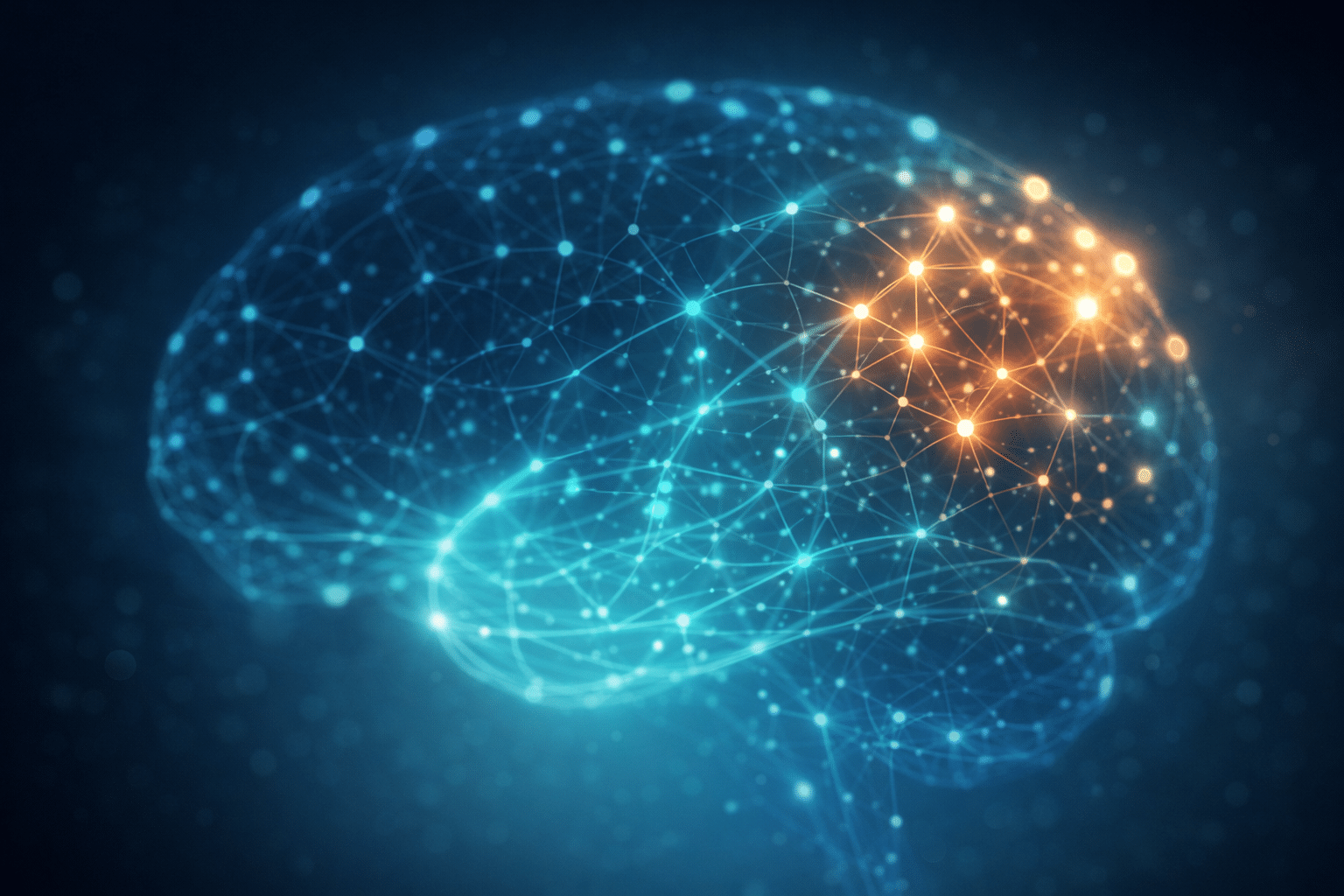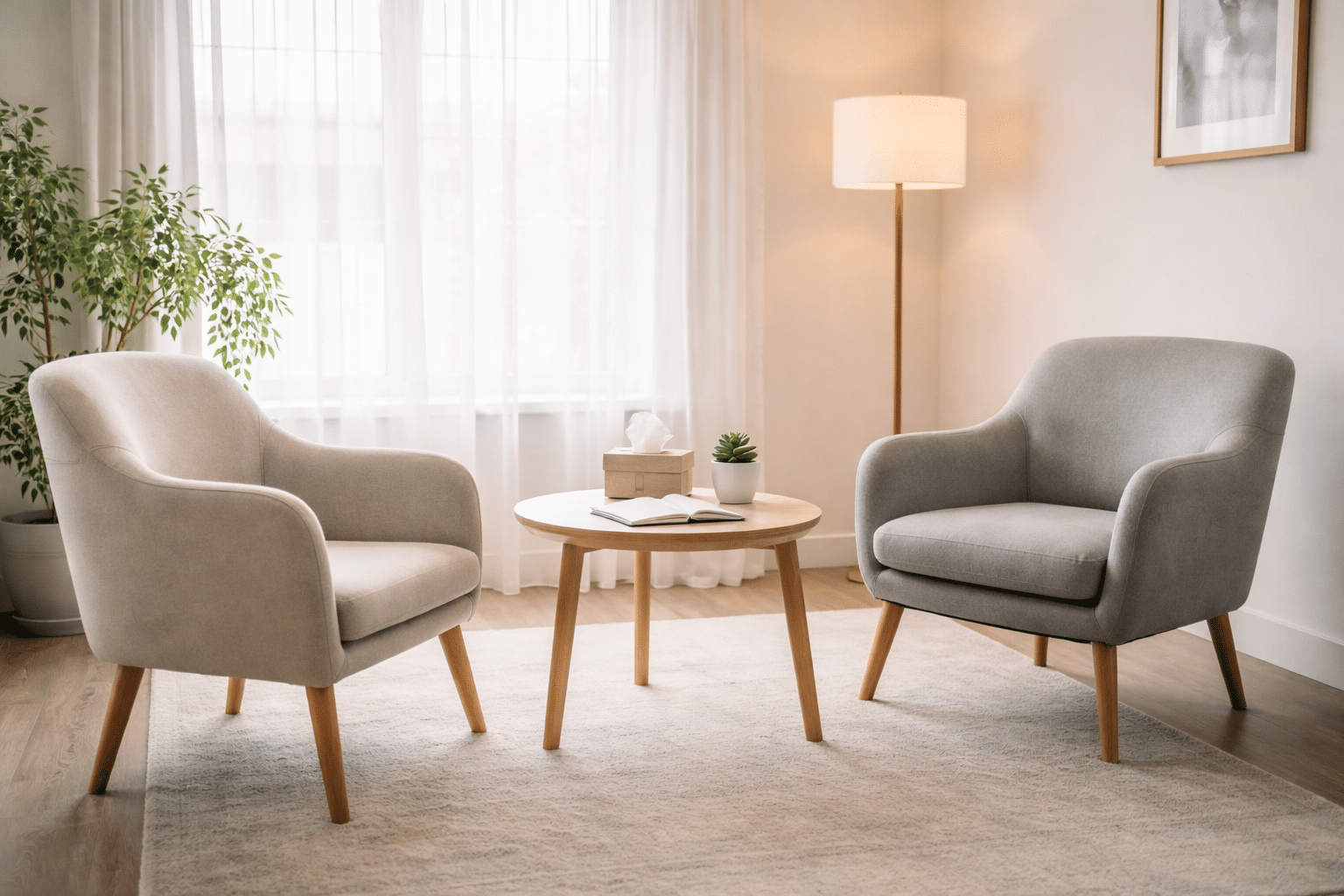Starting treatment usually comes with optimism. The first prescription might lift the fog. A round of therapy sessions may bring clarity. But then, for many, progress slows. Symptoms creep back in, and hope turns to frustration.
If you have searched for depression treatment or ADHD treatment, chances are you know the cycle. Standard care that includes medication and therapy remains the backbone. Yet, mental health rarely lives in just one corner of the brain. It is tangled with sleep, stress, diet, and even how the body processes medication.
Holistic psychiatry layers in other tools, including lifestyle medicine, innovative biological treatments, and preventative strategies, so patients get more lasting results. When people look up psychiatry near them, this more complete model is often what they are hoping to find.
When Traditional Psychiatry Isn’t Quite Enough
There’s a reason medication and therapy are first-line treatments: They’ve helped millions. Antidepressants can rebalance brain chemicals, while cognitive behavioral therapy helps rewire unhelpful thoughts. These approaches save lives, and they’re often the best starting point.
However, they’re not always the full story.
Mental health is chemical, physical, behavioral, and environmental. Some of the most overlooked contributors to mood and focus include:
- Nutrient deficiencies that quietly sap energy and resilience
- Poor sleep hygiene, which disrupts cognitive function and emotion regulation
- Chronic stress, which floods the body with cortisol and wears down mental defenses
- Neurological disruptions in pathways that aren’t touched by talk therapy or SSRIs
It’s no surprise that people looking for psychiatry near them are beginning to want more than just prescriptions. They want to understand the whole picture.
A 2024 review of over 100 controlled trials backed this up. The data showed that combining therapy and medication produced stronger results for moderate to severe depression than therapy alone. Still, many patients plateau.
That’s the gap holistic psychiatry is designed to fill.
So, What Is Holistic Psychiatry?
Holistic psychiatry is all about integration. It pulls from the best of traditional psychiatry, including medications, psychotherapy, and diagnostic tools, and layers in lifestyle and biological strategies that help the mind and body work together.
Treatment begins with a thorough intake, during which practitioners might look at:
- Blood work to rule out thyroid issues, inflammation, or nutrient imbalances
- Sleep patterns and circadian rhythm disruptions
- Family history and trauma
- Gut health and digestion
- Daily routines and habits
- Patient goals beyond symptom reduction
Many clinics also use a measurement-based care approach. This means tracking changes using tools like PHQ-9 and GAD-7 throughout treatment. A 2025 randomized trial found that this method cut time to remission in half. By week 12, 71.9% of participants using measurement-based care had recovered, compared to just 51.5% with standard care.
What Goes Into Whole-Person Care?
In holistic psychiatry, care is layered. That means traditional options stay in place, but they’re joined by other tools that fill in the gaps.
Medication and Talk Therapy
These remain foundational. Antidepressants, mood stabilizers, and stimulants can make a big difference, especially when the diagnosis is clear and the match is right. Therapy helps build coping tools and challenge thinking patterns that don’t serve you anymore.
Where holistic care changes the game is how these treatments are supported, and in many cases, how they’re personalized.
Nutrition, Sleep, and Movement
We now have a clearer picture of how lifestyle affects mental health. Not in vague, motivational ways, but in numbers.
- A 2024 meta-analysis found that people following a Mediterranean-style diet saw a measurable drop in depression symptoms.
- Cognitive Behavioral Therapy for Insomnia (CBT-I) was shown to improve mood in people with depression, even when sleep was only moderately improved.
- A study published in the BMJ found that walking, yoga, and strength training each had moderate antidepressant effects, with intensity and consistency driving better outcomes.
Ketamine Therapy
For those with treatment-resistant depression or persistent suicidal thoughts, ketamine therapy has emerged as a powerful option.
IV ketamine, given under close supervision, often brings relief within hours. For people who’ve tried multiple medications without success, this can feel like a lifeline.
Spravato, a nasal form of ketamine therapy (technically, esketamine), has FDA approval for depression that hasn’t responded to other treatments. These treatments aren’t for everyone, but when used properly, they open a door that many thought was already shut.
Other Supportive Tools
A holistic psychiatric plan might also include:
- IV vitamin therapy to correct imbalances and restore energy
- Genetic testing to identify which medications may work best with your biology
- Mindfulness practices like meditation, EMDR, or breathwork to reset the nervous system
What It Means in Daily Life
Holistic care isn’t just a philosophy. It changes the actual way people experience healing.
If You’re Navigating Depression
Medication helps regulate mood. Therapy helps shift thought patterns. But that’s just the start.
TMS has become a solid option for people with depression that doesn’t respond to medication or talk therapy. A 2024 real-world study found that 66% of patients improved with fMRI-guided TMS. Even without imaging, 63% responded to standard rTMS. A separate 2025 trial showed that maintenance TMS worked about as well as lithium but caused fewer side effects.
If You’re Dealing With ADHD
ADHD is a different story. Stimulants help with focus, but they often miss the emotional spikes or executive dysfunction that disrupt daily life. That’s where therapy, especially CBT, makes a difference.
Studies show that combining it with medication can improve outcomes by the third month. Add some structure, better sleep, maybe omega-3s, and the progress tends to stick. When people search for ADHD treatment, they’re not just looking to cope. They want to function.
Why This Matters, and Where to Start
The best way to think about holistic psychiatry is this: It meets you where you are, and walks with you as you figure out where you want to go.
You’re not expected to have all the answers. However, if what you’ve tried so far hasn’t worked or hasn’t worked enough, it might be time for something more integrative.
At Zeam Health & Wellness, we provide this kind of care every day. We serve patients in Folsom, Roseville, and Sacramento, blending trusted clinical tools with advanced therapies, lifestyle strategies, and whole-person insight.
If you’re looking for a mental health clinic near you that helps you build something lasting, this is your invitation to take the next step. Reach out today to schedule a consultation.
Key Takeaways
- Traditional care remains foundational — medication and therapy are effective first-line treatments for depression and ADHD, but many patients plateau and need additional support. [1]
- Holistic psychiatry integrates lifestyle and biological tools — blood work, sleep assessment, family history, and nutrition are considered alongside therapy and medication. [2]
- Measurement-based care improves recovery rates — a 2025 randomized trial found remission was achieved in 71.9% of patients by week 12 when progress was tracked with tools like PHQ-9 and GAD-7, compared to 51.5% in standard care. [3]
- Lifestyle medicine matters — Mediterranean diets, CBT for insomnia, and physical activity (walking, yoga, strength training) each showed measurable antidepressant benefits. [4][5]
- Ketamine and Spravato® provide rapid relief — for treatment-resistant depression, IV ketamine and FDA-approved esketamine nasal spray reduce symptoms within hours to days. [6]
- TMS is effective for depression maintenance — real-world data show response rates of 63–66% with both standard and advanced TMS, with maintenance TMS working as well as lithium but with fewer side effects. [7][8]
- ADHD treatment improves when therapy is combined with medication — stimulants address focus, while CBT and lifestyle changes support emotional regulation and executive function. [9]
- Holistic psychiatry personalizes care — supportive tools may include IV nutrient therapy, genetic testing, mindfulness practices, and EMDR, ensuring mind-body integration. [2][6]
References
[1] Cuijpers P, et al. The efficacy of combined psychotherapy and pharmacotherapy compared with monotherapy in the treatment of depression: A meta-analysis. World Psychiatry. 2024
[2] Practice of Holistic Psychiatry. Overview of integrative approaches.
[3] Sun Y, et al. Measurement-based care in major depression: randomized trial outcomes. J Affect Disord. 2025
[4] Firth J, et al. Mediterranean diet and depressive symptoms: systematic review and meta-analysis. Nutr Neurosci. 2024
[5] Pearce M, et al. Exercise interventions and depression outcomes: BMJ meta-analysis. BMJ. 2023
[6] Daly EJ, et al. Efficacy and safety of esketamine nasal spray plus oral antidepressant in treatment-resistant depression. JAMA Psychiatry.
[7] Zeng Y, et al. Real-world outcomes of accelerated rTMS for treatment-resistant depression. Brain Stimul. 2024
[8] Williams NR, et al. TMS maintenance vs lithium for depression relapse prevention.
[9] Childress AC, et al. Combined stimulant medication and cognitive-behavioral therapy for ADHD: outcomes over 3 months. J Child Adolesc Psychopharmacol.




